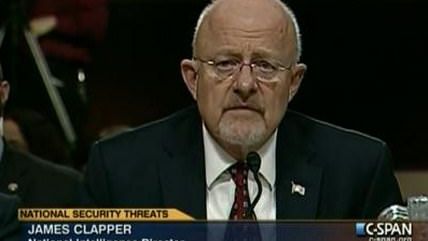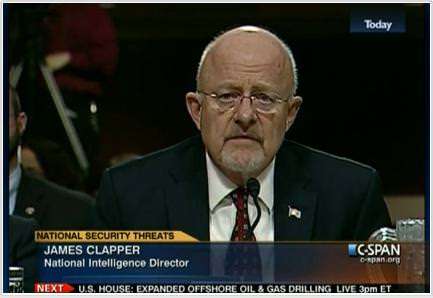Feds Declassify Small Amount of NSA Snooping Data That We Already Know
Classified talking points made public


Edward Snowden's leaks are allegedly bad and damaging to the United States' homeland security efforts, and also wrong and exaggerated, the federal government insists. But today the federal government also declassified some documents describing and justifying their mass metadata collection efforts, so why should we believe it's dangerous to be made public? Anyway, the declassified documents pretty much confirm what we've already been told. Via CNet:
Documents declassified on Wednesday by Director of National Intelligence James Clapper describe the National Security Agency's data snooping, aka "Bulk Collection Program," carried out under the USA Patriot Act.
A 2009 document confirms the controversial program under which the NSA has the authority to collect from telecom providers such information as the date, time, and length of a call.
The document says that the actual call content is not collected, while any information gathered is not protected by the Fourth Amendment. The court orders served to telecom companies require them to turn over the records for any call made within the U.S. or between the U.S. and another country. The government has the power to snare certain details on e-mails as well, including the sender, receiver, and the time the message was sent, but not the content or subject line, according to the document.
The cover letters nicely provided all the talking points we've heard from the program's defenders already. The most interesting parts of the documents are, obviously, what is redacted out. In the 2011 report (pdf), talking about Foreign Intelligence Surveillance Court (FISA) oversight, it mentions that, before submitting a bulk records query, an NSA analyst must have reasonable suspicion that the e-mail address they want to look at is associated with something or someone that has been redacted. Two thoughts here: Do they think that we are unable to complete that sentence (or that the likely targets are)? Or would the most logical completion of the sentence ("identified terrorist threats against the United States") actually be incorrect?
It also mentions the one set of "compliance issues" that has been caught before about the collection of bulk records, but much of the information is redacted, leaving just a statement that they didn't see any "bad faith" in these mistakes and that "remedial action" was ordered. We have no idea what they did wrong, but it was connected to the collection of business records.
The three documents may be read here.


Show Comments (15)